brand
CBA Foundation says man’s inhumanity to man is at its worst in the way in-laws treat widows

 After Mrs kumbaya (name changed to protect her identity) lost her husband at work in 2005, she was accused of killing him. The accusation did not come from her husband’s brothers but his sister, who had earlier lost her own husband. It took the combined hard work of the brothers to get their sister off the back of her fellow widow. They told their sister pointedly that she too could face the same accusation she was levelling against their sister-in-law, since her husband was deceased too.This real incident underlines one of the greatest puzzles of the twenty-first century: How people who themselves or their mother or children or relatives are victims or could be victims of the dehumanising treatment of widows condone, live with, encourage and perpetuate the horrendous denigration inflicted on widows by their in-laws. The continued existence of this kind of situation of dog eat dog, or rather man’s inhumanity to man, makes one wonder if Aristotle also considered (Nigerian) in-laws when he asserted that man is a rational animal. There is absolutely nothing rational about the dehumanisation widows are subjected to by their in-laws in this clime.A man, who through marriage has become one with the woman he marries, dies, leaving behind his wife and five children (three boys and two girls – this fact is only being added to show that the gender of the children may not even be a factor in how the widow is treated). Almost immediately his siblings and other blood relatives swoop on whatever assets of his they can lay their hands on. If a family meeting is convened, it is not to discuss the welfare of their late brother’s wife and children, who all bear the family name as part of their extended family. No, that is an agenda item for meetings convened by angels, not in-laws of widows. What in-laws of widows convene family meetings for is to make sure they have not missed out any of the assets their late brother could have had. That is how kind in-laws are to a widow.If Mrs Kumbaya thought her case was going to be different because her brothers-in-law defended and protected her from their sister, then she apparently may have ascribed angelic virtues to her husband’s brothers. For, as it turned out, that act of defence and protection from their sister was the only kindness the brothers of Mrs Kumbaya’s late husband extended to her. They never helped or asked after her and her children’s welfare after that. Not even when things became so difficult that she could no longer pay her house rent and ended up on the street.Maybe Mrs Kumbaya should even count herself lucky. Stories abound of widows who had been abused, molested, raped or “shared” by in-laws as part of the property left behind by their late brother. There are stories of widows, falsely accused of killing their husbands, being locked up by in-laws in police cells and the keys thrown into the sea, as it were. What about widows forced to drink the water used to wash the corpse of their husband as proof that they had no hand in their husband’s death. Or the ones forced to spend days and nights in the same room with the corpse of their husband.Nigeria is not exactly a safe haven for women. What with the prevalence of harmful cultural orientations and practices against the female gender, such as preference of the male child to the female child, female circumcision, FGM (female genital mutilation), forced marriage and denial of inheritance, succession and other rights the male gender takes for granted. Generally, Nigeria is not a friendly environment for women, least of all widows considered to be a highly vulnerable group. In fact, Nigeria is said to be one of the least safe places for women in the world with a survey by the Thomson Reuters Foundation conducted in 2018 ranking Nigeria as the ninth most dangerous country in the world for women.The dehumanising treatment of widows is part of what the Violence Against Persons (Prohibition) Act, passed in 2015, was intended to stop. The Act, more commonly referred to as the VAPP Act or law, categorises emotional, verbal and psychological abuse as offences and is considered by many legal experts and advocacy groups to be a comprehensive tool for addressing all forms of violence and abuse against all persons. The law seeks to do so by providing maximum protection from violence of various forms against all persons irrespective of tribe, socio-economic class, religion and gender and offering effective remedies (financial compensation) for victims of violence and appropriate punishment (globally acceptable deterrents) for offenders.It is not known how much of the general population, including in-laws who routinely dehumanise widows, is aware of the VAPP law. While ignorance of the law offers no excuse in a court of law, it is imperative that more enlightenment be created on the existence of the VAPP Act and all its provisions against many of the inimical practices that in-laws perpetrate against widows in the name of culture. Maybe, just maybe, some in-laws, who are themselves uncomfortable with those practices but take part because of family and community pressure, could be emboldened by knowledge of the Act to become advocates and campaigners against such practices.Back to Mrs Kumbaya, for those concerned about her and what must have happened to her after she ended up on the street. They can heave a sigh of relief that the good Lord sent his angel in the form of the Chinwe Bode-Akinwande Foundation (CBA Foundation) and they took her off the street. Mrs Kumbaya now lives in an apartment rented for her by the Foundation, which also supplied her a mattress, other household items and food stuff.The CBA Foundation, founded in 2015, the same year the VAPP Act was enacted, is a strong advocate for the enforcement of the Act. Along other civil society groups, it is pushing for the domestication of the Act in states of the federation that are yet to enact a similar act. Rigorous enforcement of the VAPP law across the federation will undoubtedly accelerate the mission of the Foundation, which is to promote “the protection of [underprivileged] widows and their vulnerable children in Nigeria, to promote immediate and lasting hope, confidence and courage in their lives.” The Foundation pursues its mission under its 5-point agenda of women empowerment/capacity building, health intervention, nutrition, quality basic education and a self-employment scheme.This piece is not intended to demonise in-laws. The writer is himself an in-law by multiples. It is to call for a change of heart and attitude in society, particularly among in-laws, towards widows, knowing that we, our mothers, daughters, neighbours, friends are or could become widows. In-laws should join public-spirited people across the country in supporting the CBA Foundation in its advocacy for enforcement of the VAPP law and in providing succour for underprivileged widows and their vulnerable children. There are many Mrs Kumbayas out there but the resources and reach of angels such as CBA Foundation are limited. Men and women of goodwill, including in-laws who have now seen the light, can extend the Foundation’s resources and reach by supporting it in its mission. Contact the Foundation today by sending an email to them at: [email protected].
After Mrs kumbaya (name changed to protect her identity) lost her husband at work in 2005, she was accused of killing him. The accusation did not come from her husband’s brothers but his sister, who had earlier lost her own husband. It took the combined hard work of the brothers to get their sister off the back of her fellow widow. They told their sister pointedly that she too could face the same accusation she was levelling against their sister-in-law, since her husband was deceased too.This real incident underlines one of the greatest puzzles of the twenty-first century: How people who themselves or their mother or children or relatives are victims or could be victims of the dehumanising treatment of widows condone, live with, encourage and perpetuate the horrendous denigration inflicted on widows by their in-laws. The continued existence of this kind of situation of dog eat dog, or rather man’s inhumanity to man, makes one wonder if Aristotle also considered (Nigerian) in-laws when he asserted that man is a rational animal. There is absolutely nothing rational about the dehumanisation widows are subjected to by their in-laws in this clime.A man, who through marriage has become one with the woman he marries, dies, leaving behind his wife and five children (three boys and two girls – this fact is only being added to show that the gender of the children may not even be a factor in how the widow is treated). Almost immediately his siblings and other blood relatives swoop on whatever assets of his they can lay their hands on. If a family meeting is convened, it is not to discuss the welfare of their late brother’s wife and children, who all bear the family name as part of their extended family. No, that is an agenda item for meetings convened by angels, not in-laws of widows. What in-laws of widows convene family meetings for is to make sure they have not missed out any of the assets their late brother could have had. That is how kind in-laws are to a widow.If Mrs Kumbaya thought her case was going to be different because her brothers-in-law defended and protected her from their sister, then she apparently may have ascribed angelic virtues to her husband’s brothers. For, as it turned out, that act of defence and protection from their sister was the only kindness the brothers of Mrs Kumbaya’s late husband extended to her. They never helped or asked after her and her children’s welfare after that. Not even when things became so difficult that she could no longer pay her house rent and ended up on the street.Maybe Mrs Kumbaya should even count herself lucky. Stories abound of widows who had been abused, molested, raped or “shared” by in-laws as part of the property left behind by their late brother. There are stories of widows, falsely accused of killing their husbands, being locked up by in-laws in police cells and the keys thrown into the sea, as it were. What about widows forced to drink the water used to wash the corpse of their husband as proof that they had no hand in their husband’s death. Or the ones forced to spend days and nights in the same room with the corpse of their husband.Nigeria is not exactly a safe haven for women. What with the prevalence of harmful cultural orientations and practices against the female gender, such as preference of the male child to the female child, female circumcision, FGM (female genital mutilation), forced marriage and denial of inheritance, succession and other rights the male gender takes for granted. Generally, Nigeria is not a friendly environment for women, least of all widows considered to be a highly vulnerable group. In fact, Nigeria is said to be one of the least safe places for women in the world with a survey by the Thomson Reuters Foundation conducted in 2018 ranking Nigeria as the ninth most dangerous country in the world for women.The dehumanising treatment of widows is part of what the Violence Against Persons (Prohibition) Act, passed in 2015, was intended to stop. The Act, more commonly referred to as the VAPP Act or law, categorises emotional, verbal and psychological abuse as offences and is considered by many legal experts and advocacy groups to be a comprehensive tool for addressing all forms of violence and abuse against all persons. The law seeks to do so by providing maximum protection from violence of various forms against all persons irrespective of tribe, socio-economic class, religion and gender and offering effective remedies (financial compensation) for victims of violence and appropriate punishment (globally acceptable deterrents) for offenders.It is not known how much of the general population, including in-laws who routinely dehumanise widows, is aware of the VAPP law. While ignorance of the law offers no excuse in a court of law, it is imperative that more enlightenment be created on the existence of the VAPP Act and all its provisions against many of the inimical practices that in-laws perpetrate against widows in the name of culture. Maybe, just maybe, some in-laws, who are themselves uncomfortable with those practices but take part because of family and community pressure, could be emboldened by knowledge of the Act to become advocates and campaigners against such practices.Back to Mrs Kumbaya, for those concerned about her and what must have happened to her after she ended up on the street. They can heave a sigh of relief that the good Lord sent his angel in the form of the Chinwe Bode-Akinwande Foundation (CBA Foundation) and they took her off the street. Mrs Kumbaya now lives in an apartment rented for her by the Foundation, which also supplied her a mattress, other household items and food stuff.The CBA Foundation, founded in 2015, the same year the VAPP Act was enacted, is a strong advocate for the enforcement of the Act. Along other civil society groups, it is pushing for the domestication of the Act in states of the federation that are yet to enact a similar act. Rigorous enforcement of the VAPP law across the federation will undoubtedly accelerate the mission of the Foundation, which is to promote “the protection of [underprivileged] widows and their vulnerable children in Nigeria, to promote immediate and lasting hope, confidence and courage in their lives.” The Foundation pursues its mission under its 5-point agenda of women empowerment/capacity building, health intervention, nutrition, quality basic education and a self-employment scheme.This piece is not intended to demonise in-laws. The writer is himself an in-law by multiples. It is to call for a change of heart and attitude in society, particularly among in-laws, towards widows, knowing that we, our mothers, daughters, neighbours, friends are or could become widows. In-laws should join public-spirited people across the country in supporting the CBA Foundation in its advocacy for enforcement of the VAPP law and in providing succour for underprivileged widows and their vulnerable children. There are many Mrs Kumbayas out there but the resources and reach of angels such as CBA Foundation are limited. Men and women of goodwill, including in-laws who have now seen the light, can extend the Foundation’s resources and reach by supporting it in its mission. Contact the Foundation today by sending an email to them at: [email protected].
brand
UBA Group Dominates 2025, Banker Awards, Emerges Africa’s Bank of the Year, For Third Time in Five Years
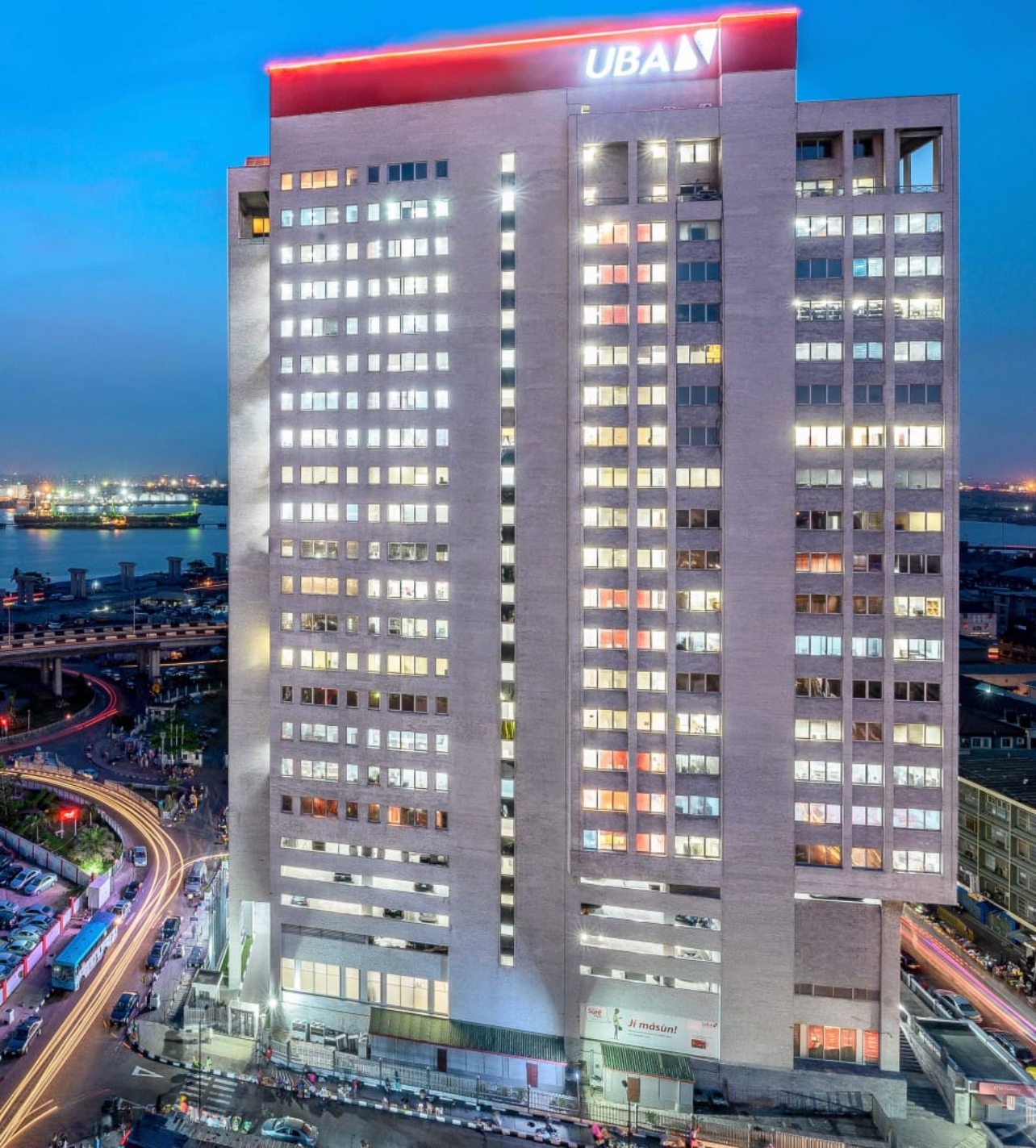
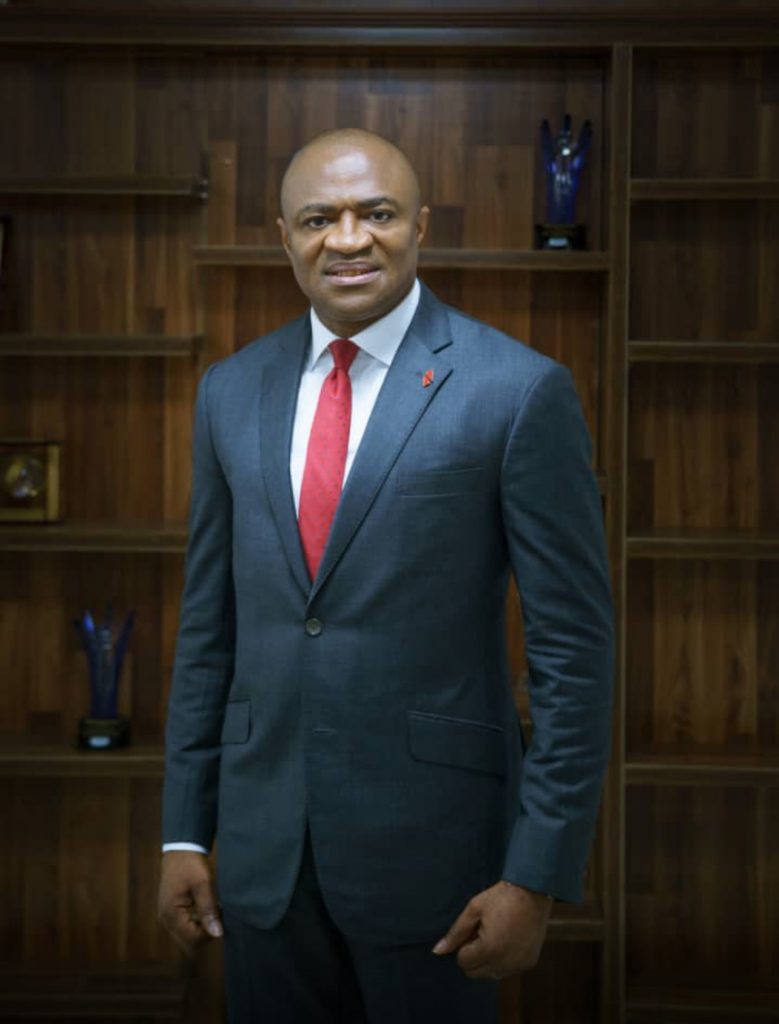
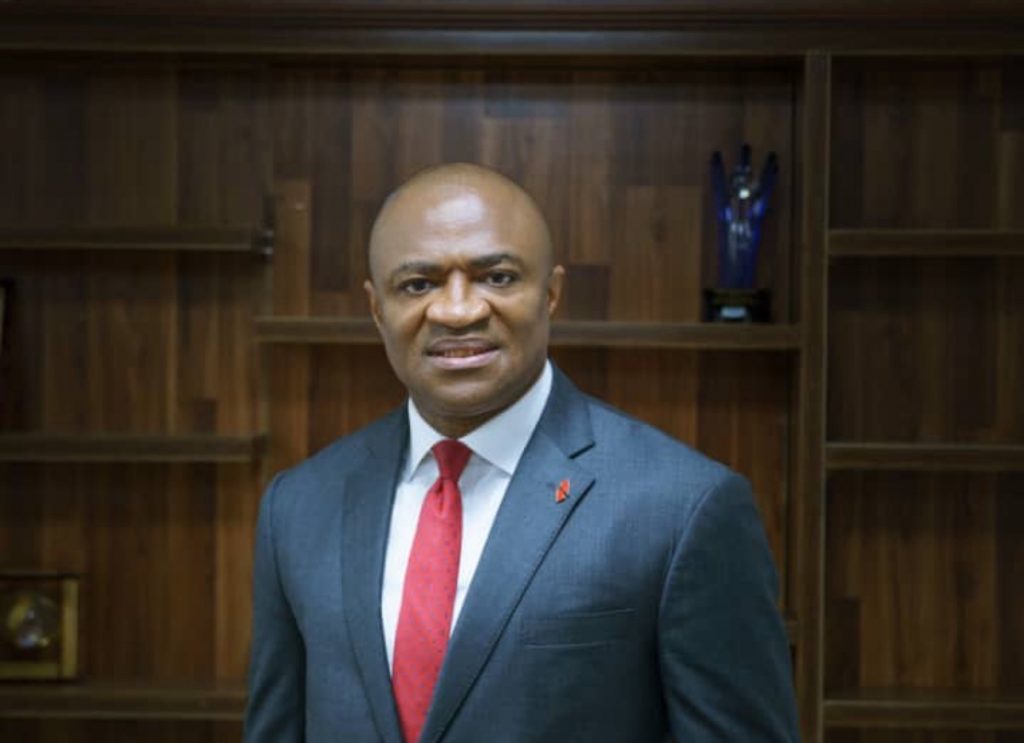 ….Wins Best Bank in Nine out of 20 African Subsidiaries
….Wins Best Bank in Nine out of 20 African Subsidiaries
Africa’s Global Bank, United Bank for Africa (UBA) Plc, has once again, reaffirmed its leadership as one of the continent’s most innovative and resilient financial institutions, as the bank has, for the third time in five years, been named the African Bank of the year 2025 by the Banker.com.
UBA also won the Best Bank of the Year awards in nine of its 20 African subsidiaries, bringing its total awards this year to ten as UBA Benin, UBA Chad, UBA Republic of Congo (Congo-Brazzaville), UBA Liberia, UBA Mali, UBA Mozambique, UBA Senegal, UBA Sierra Leone, and UBA Zambia, all came out tops as the best banks in their respective countries, underscoring the bank’s strength across West, Central and Southern Africa and highlighting the depth of its Pan-African franchise.
The Banker.com, a leading global finance news publication published by the Financial Times of London, organises the annual Bank of the Year Awards, and this year’s edition was held at a grand ceremony at the Peninsula, London, on Wednesday.
The Chief Executive Officer, UBA UK, Deji Adeyelure, received the awards on behalf of the bank, representing the Group Managing Director/CEO, Oliver Alawuba, and was accompanied by the bank’s Head Business Development, Mark Ifashe, and Head, Financial Institutions, Shilpam Jha.
The Banker’s awards are widely regarded as the most respected and rigorous in the global banking industry, celebrating institutions that demonstrate outstanding performance, innovation and strategic execution.
In its remarks on UBA’s winnings, the banker.com said, “For the third time in five years, UBA Group has won the coveted Bank of the Year award for Africa. UBA Group time after time punches above its weight against its larger African rivals. The bank this year also takes home nine separate country awards (one more than it gained for its last continental win in 2024), equivalent to around a quarter of the awards for the continent, and more than any of its continent-wide rivals.”
Continuing, it said, “Perhaps even more impressive is the fact that the awards were won across a broad geographic spread, going to lenders based in the Economic Community of West African States (Benin, Liberia, Senegal, Sierra Leone, and former member Mali), the Central African Economic and Monetary Community (Chad, Republic of Congo) and the Southern African Development Community (Mozambique, Zambia). Its award wins were particularly notable in the highly competitive categories for Benin and Mozambique.”
The Banker also highlighted UBA’s strong financial performance and commitment to future growth. In 2024, the Group recorded a 46.8 per cent increase in assets and a 6.1 per cent rise in pre-tax profits in local currency terms, while continuing to invest significantly in talent and technology. West Africa remains UBA’s heartland, with operating revenue and profit increasing by 87 per cent and 89 per cent respectively in H1 2025.
The bank’s digital and innovation leadership was equally recognised. During the year under review, and launched its Advance Top-Up buy-now-pay-later feature on the *919# USSD platform, expanding financial access for customers, while the bank’s chatbot Leo continued its strong growth trajectory, with transaction volumes rising by 29 per cent year-on-year in H1 2025. Notably, in August, Leo became the first African banking chatbot to enable cross-border payments via the Pan-African Payment and Settlement System (PAPSS).
UBA’s Group Managing Director/Chief Executive Officer, Oliver Alawuba, while reacting to the achievement, said the recognition affirms the bank’s long-term strategy and customer-first philosophy.
“This honour reflects the strength of our Pan-African network, the trust of our customers, and the dedication of our people. Winning Africa’s Bank of the Year for the third time in five years is not by chance; it is a testament to disciplined execution, innovation, and a deep understanding of the markets we serve,” Alawuba said.
“Our nine country awards across diverse regions of Africa show that UBA is not just growing, but growing with impact. We remain committed to driving financial inclusion, supporting economic development, and deploying technology that makes banking simpler, faster, and more accessible to Africans everywhere,” he added.
United Bank for Africa is one of the largest employers in the financial sector on the African continent, with 25,000 employees group-wide and serving over 45 million customers globally. Operating in twenty African countries, the United Kingdom, the United States of America, France and the United Arab Emirates, UBA provides retail, commercial and institutional banking services, leading financial inclusion and implementing cutting-edge technology.
brand
ZENITH BANK TECH FAIR 5.0 SPOTLIGHTS INNOVATION, AWARDS ₦140 MILLION CASH PRIZE TO HACKATHON WINNERS
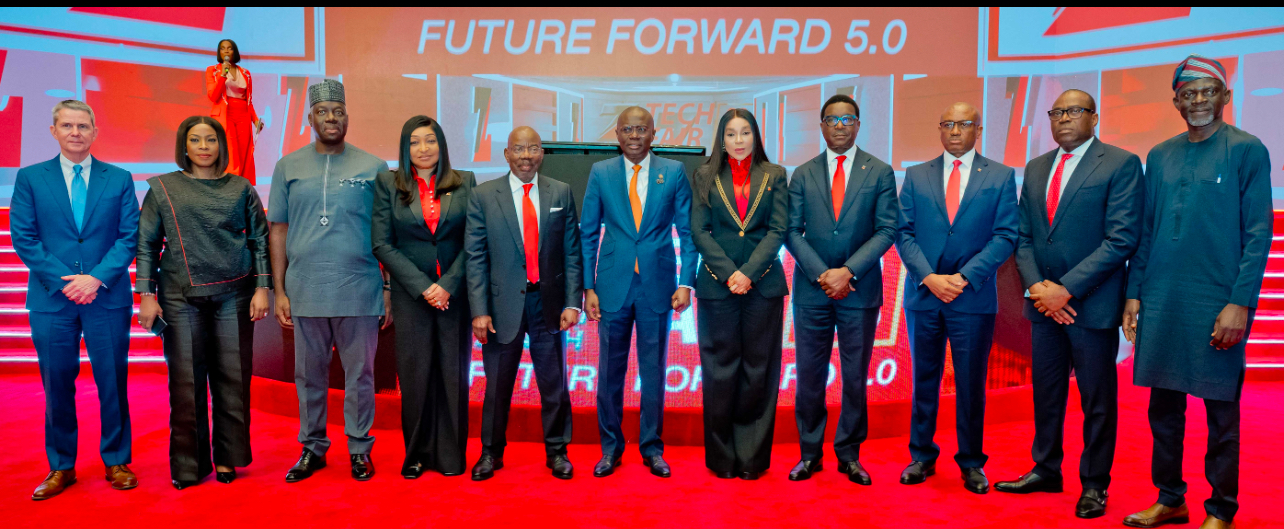
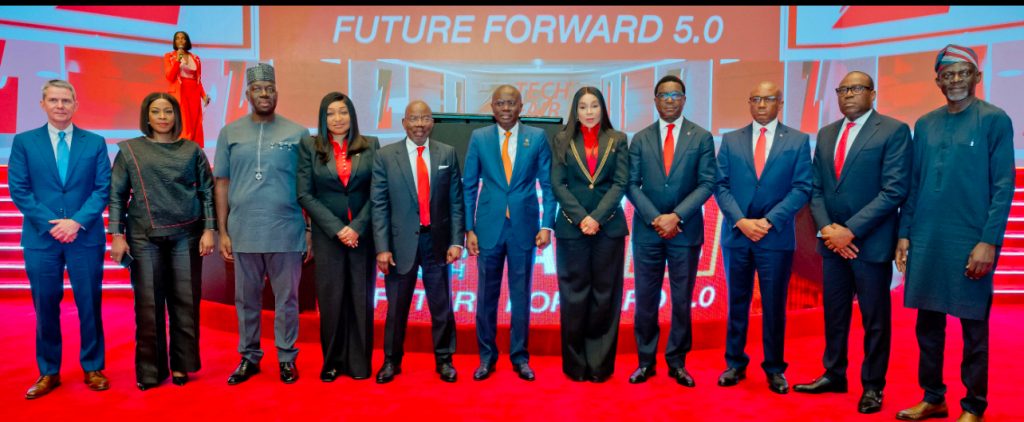
L-R: Executive Vice President, CNN International Commercial, Phil Nelson; Founder & CEO, Beyond Limits Africa and Non-Executive Director, Zenith Bank, Dr. Juliet Ehimuan; Managing Director/CEO, NIBSS, Premier Oiwoh; Executive Director, Zenith Bank, Mrs. Adobi Nwapa; Founder & Chairman, Zenith Bank, Jim Ovia, CFR; Governor of Lagos State, Mr. Babajide Sanwo-Olu; Group Managing Director/CEO, Zenith Bank, Dame Dr. Adaora Umeoji, OON; Executive Director, Zenith Bank, Mr. Akin Ogunranti; Executive Director, Zenith Bank, Mr. Louis Odom; Executive Director, Zenith Bank, Mr. Adamu Lawani; and Director, Information Technology Infrastructure Solutions, NITDA, Mr. Oladejo Olawumi during the Zenith Bank Tech Fair Future Forward 5.0 held at the Eko Convention Centre, Eko Hotels & Suites, Victoria Island, Lagos, recently.
A total cash prize of ₦140 million has been awarded to ten (10) African innovators to scale their transformative solutions after a keenly contested hackathon and pitch session at the Fifth Edition of the Zenith Tech Fair, themed “Future Forward 5.0: Tech for Success – Innovate, Adapt, Accelerate”, which held on Thursday, November 20, 2025, at the Eko Convention Centre, Eko Hotels & Suites, Victoria Island, Lagos.The 2025 edition of the Zenith Tech Fair featured an expanded, dual-competition structure that included a high-stakes Hackathon for product development and a Startup Pitch Competition for early-stage ventures, and drew participation from thousands of developers, founders, and entrepreneurs across the continent.The prize money was shared among ten finalists who emerged from the over 2,000 contestants that took part in the Zecathon. In the hotly contested final, two major winners emerged, each receiving the top prize of ₦30 million. The winner of the Hackathon, Trust Loop, clinched first place for its innovative solution that delivers seamless digital KYC and liveness verification. Simultaneously, the winner of the Startup Pitch Competition, Cubbes Technologies Limited, secured the top spot for its revolutionary AI-powered EdTech platform that enhances learning and career readiness.The remaining eight (8) finalists across both categories were equally recognised, each receiving ₦10 million in non-dilutive funding. They include Venille Ltd, Sowota, FLOW, InvoPay, Zenith Intelliscore, The Very Hacked Men, Konfam and Zerax. All ten finalists will also be entitled to a six-week mentorship and incubation programme designed to help them grow and scale effectively, and this will run from December 2025 to February 2026.The Group Managing Director/CEO of Zenith Bank Plc, Dame Dr Adaora Umeoji, OON, in her welcome address, thanked the Founder & Chairman, Dr Jim Ovia, CFR, for the visionary foresight that led to the creation of the Zenith Tech Fair. Commenting on the Zecathon, she said, “Our theme this year, ‘Tech for Success: Innovate, Adapt, Accelerate’, is very timely. To appreciate its urgency, it helps to reflect on the speed of human progress. According to the Harvard Business Review, it took humanity millions of years to master fire, yet only 66 years to move from the first powered flight to landing on the moon. The lesson is simple – the next technological breakthrough will not take a lifetime. It will emerge sooner than we expect and could come from any one of you in this room today. We are confident that this Tech Fair will produce innovators who will change the world, and we stand ready to support you to turn your ideas into reality.”In his Goodwill Message, the Founder and Chairman of Zenith Bank Plc, Jim Ovia, CFR, said, “This fifth edition reflects our unwavering commitment to create value through technology, innovation, and talent development. My vision is to continue to empower the youth through technology, with the hope that one day we will produce the likes of Bill Gates, Steve Jobs and Jeff Bezos.”Whilst delivering his goodwill message, the Governor of Lagos State, His Excellency, Mr Babajide Sanwo-Olu, called for increased technological empowerment initiatives to provide youths with adequate opportunities needed to thrive in the digital future. He said, “What I see happening here every year are things that we in leadership need to connect with. This is an activation that can bring life and real conversation to the young, dynamic, innovative, and creative young people that we have in this country. By 2050, half of the youth population in the world will be in Africa, and even in Africa, they will be in Nigeria, and if they are in Nigeria,
they will be somewhere in Lagos, and we need to be able to fish them out. We need to give them an opportunity and a space to fly. We want to make Lagos the human capital centre of the world, where Microsoft and Google will think of raising a million tech experts. That’s the kind of vision and opportunity we want to leave behind.”Hailed as a resounding success by participants, the Fair showcased cutting-edge demonstrations on the role of Generative AI, Agentic AI, and Cloud Computing in driving economic growth with Keynote addresses delivered by Sitoyo Lopokoiyit, Managing Director, M-PESA Africa; Jonas Kjellberg, Co-Creator, Skype and Dr. Shivagami Gugan, Chief Technologist for Middle East, Turkey and Africa, AWS.The event also featured goodwill messages by the National Commissioner, Nigeria Data Protection Commission, Dr. Vincent Olatunji, and the Governor of Niger State, His Excellency, Governor Mohammed Umaru Bago, ably represented by the Head of Service, Niger State, Mr. Abubakar Sadiq Idris.Another key feature from the tech fair this year was the robust exclusive masterclasses delivered by global technology and consulting powerhouses: McKinsey & Company, Huawei, Check Point, and Microsoft. These sessions covered critical topics from cybersecurity to advanced cloud solutions and disruptive technologies, equipping participants with world-class insights.Aside from the thrilling musical performance by Nigerian musician Spyro, the fair also featured dual-panel sessions that were very insightful and highly interactive. The panel sessions both had Zain Asher, CNN Anchor, as host, and featured high-level discussants including Adaora Nwodo, Founder & Executive Director, NexaScale; Aisha Tofa, Board Chair, Startup Kano Centre for Innovation Dev.; David Kpakima, Co-Founder, Rasab Group, Sierra Leone; Dr Stanley Jacob, President, FINTECHNGR; Iyinoluwa S. Aboyeji, CEO Future Africa; Gary Fowler, CEO & Founder GSD Venture Studios; Bradwin Roper, Chief Payments & Partnerships Officer at JUMO, and Mrs. Omoyemen A. Jide-Samuel, Director, Information Technology, CBN.Zenith Bank remains committed to fostering an ecosystem where innovation thrives, ensuring that the next generation of African tech leaders have the capital, mentorship, and resources required to achieve global scalability and impact.The Bank’s track record of excellent performance has continued to earn the brand numerous awards, including being recognised as the Number One Bank in Nigeria by Tier-1 Capital for the sixteenth consecutive year in the 2025 Top 1000 World Banks Ranking, published by The Banker and “Nigeria’s Best Bank” at the Euromoney Awards for Excellence 2025. The Bank was also awarded Bank of the Year (Nigeria) in The Banker’s Bank of the Year Awards for 2020, 2022 and 2024; Best Bank in Nigeria from 2020 to 2022, 2024 and 2025, in the Global Finance World’s Best Banks Awards; Best Bank for Digital Solutions in Nigeria in the Euromoney Awards 2023; and was listed in the World Finance Top 100 Global Companies in 2023.Further recognitions include Best Commercial Bank, Nigeria for five consecutive years from 2021 to 2025 in the World Finance Banking Awards and Most Sustainable Bank, Nigeria in the International Banker 2023 and 2024 Banking Awards. Additionally, Zenith Bank has been acknowledged as the Best Corporate Governance Bank, Nigeria, in the World Finance Corporate Governance Awards for four consecutive years from 2022 to 2025 and ‘Best in Corporate Governance’ Financial Services’ Africa for four consecutive years from 2020 to 2023 by the Ethical Boardroom
The Bank’s commitment to excellence led to Zenith being also named the Most Valuable Banking Brand in Nigeria in The Banker’s Top 500 Banking Brands for 2020 and 2021, Bank of the Year 2023 to 2025 at the BusinessDay Banks and Other Financial Institutions (BAFI) Awards, and Retail Bank of the Year for three consecutive years from 2020 to 2022 and 2024 to 2025. The Bank also received the accolades of Best Commercial Bank, Nigeria and Best Innovation in Retail Banking, Nigeria, in the International Banker 2022 Banking Awards, Bank of the Year 2024 by ThisDay Newspaper; Bank of the Year 2024 by New Telegraph Newspaper; and Best in MSME Trade Finance, 2023 by Nairametrics. The Bank’s Hybrid Offer was also adjudged ‘Rights Issue/ Public Offer of the Year at the Nairametrics Capital Market Choice Awards 2025.Zenith Bank has also bagged several non-financial awards, including Most Responsible Organisation in Africa, Best Company in Transparency and Reporting and Best Company in Gender Equality and Women Empowerment at the SERAS CSR Awards Africa 2024
brand
ZENITH BANK’S GROSS EARNINGS SURGE 16% TO N3.4TN, AS PBT HITS N917.4BN IN Q3 2025
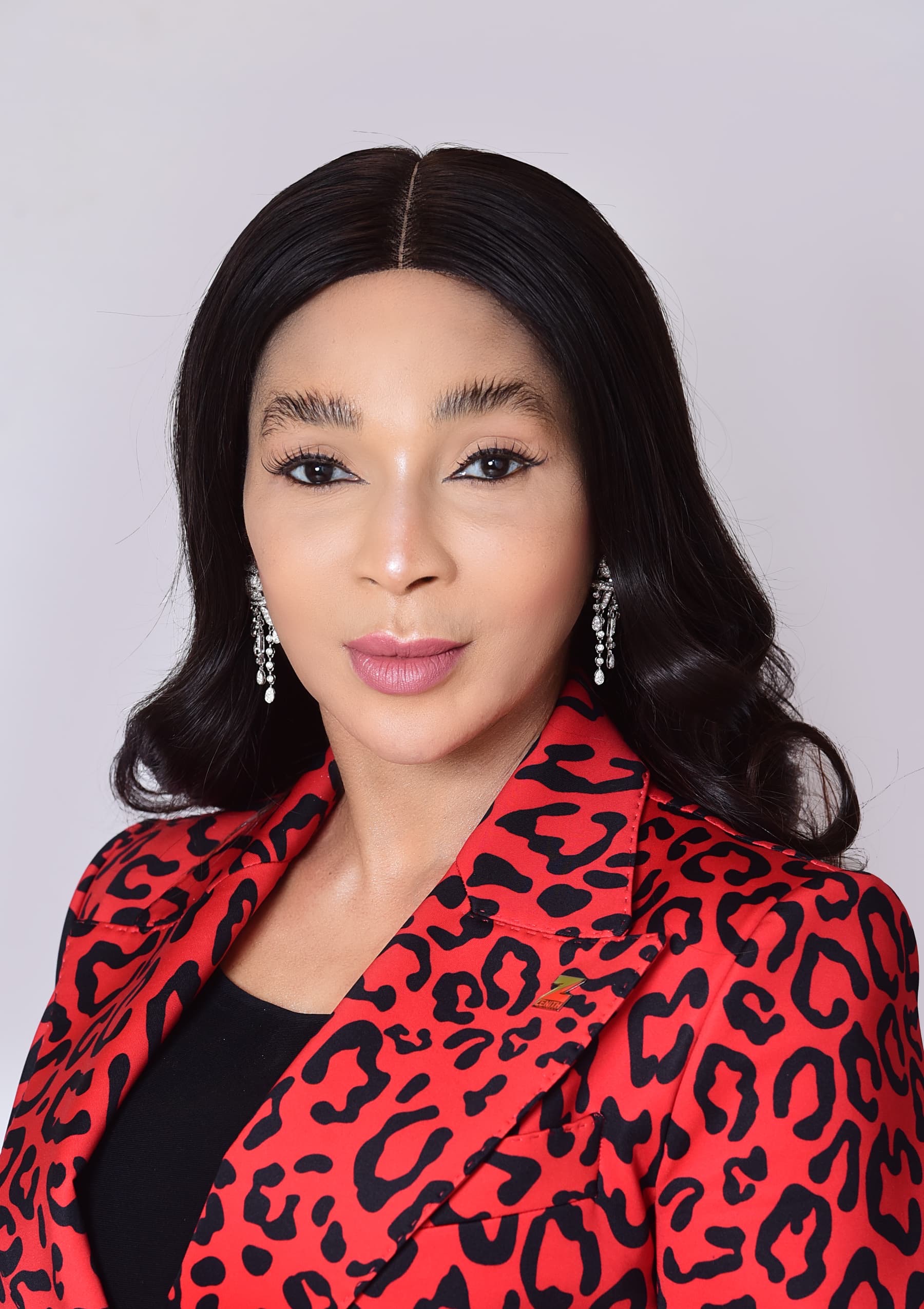
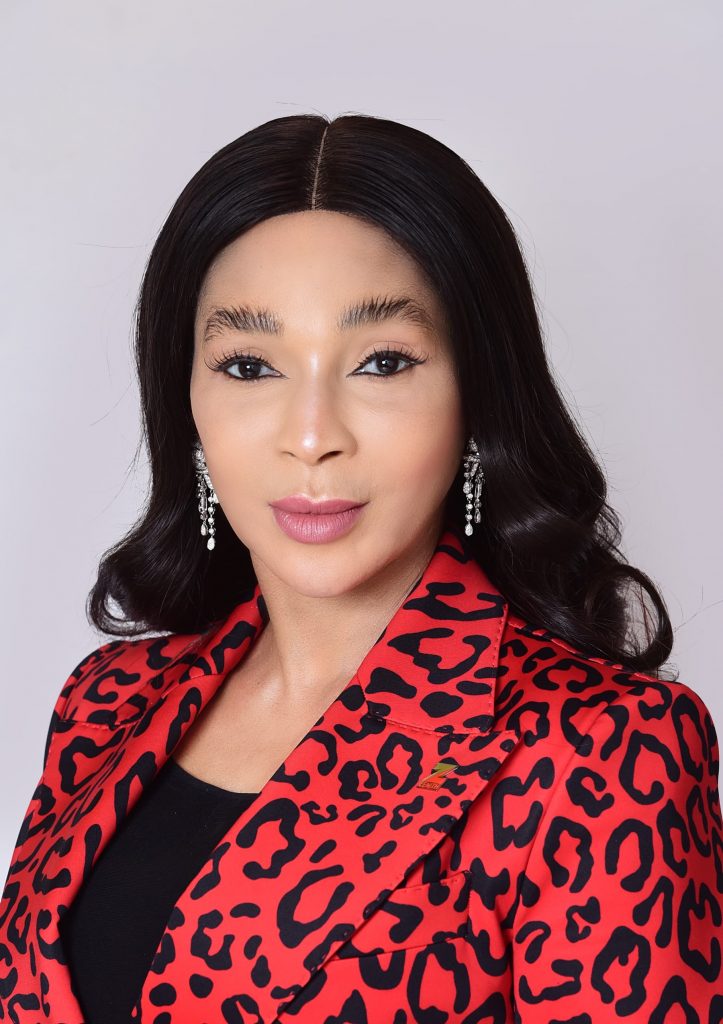
Zenith Bank Plc has released its unaudited financial results for the nine months ended 30 September 2025, with a remarkable 16% year-on-year growth in gross earnings from N2.9 trillion recorded in Q3 2024 to N3.4 trillion in Q3 2025. The Group’s performance continues to demonstrate resilience, strong momentum, disciplined execution and an ability to deliver long-term shareholder value in spite of challenging macroeconomic environment.According to the financial results presented to the Nigerian Exchange (NGX), the growth in gross earnings was driven by a sustained growth in interest income which grew by 41% year-on-year to N2.7 trillion. The growth in interest income was supported by a high-yield rate environment and an expansion in the Bank’s investment portfolio. Despite the increase in interest expense by 22% to N814 billion on the back of a tightening monetary cycle and a growth in the Bank’s funding base, the Bank was able to achieve a healthy Net Interest Margin (NIM) of 12% as against 10% in September 2024. Non-interest income declined by 38% to N535 billion, underpinned by a 60% decline in trading gains.Profitability remained strong, with profit before tax at N917 billion as against N1.00 trillion reported in September 2024. Profit after tax also declined by 8% to N764 billion and Earnings Per Share (EPS) came in at N18.60 as against N26.34 in September 2024, as the Bank took bold measures to improve the quality of its loan portfolio.The Bank’s total assets grew by 4% from N30 trillion in December 2024 to N31 trillion as at September 2025. This was largely supported by customer deposits, which rose by 8% to N23.7 trillion within the same period. Gross loans declined by 9% to N10 trillion as at September 2025, while Non-Performing Loan (NPL) ratio improved to 3% due to the write-off of non-performing loans.Return on Average Equity (ROAE) and Return on Average Assets (ROAA) stood at 23.3% and 3.3% respectively. Cost of funds increased to 4.5%, underscored by the broader elevated interest rate environment. The Group’s cost of risk stood at 10% while cost-to-income ratio rose to 45%.Coverage ratio and liquidity ratio remain solid and well within regulatory limits at 211.1% and 53% respectively. This highlights the Bank’s strong capital position and liquidity profile as well as its ability to fund strategic growth opportunities. It also reflects its unwavering commitment to a prudent risk management, compliance and corporate governance culture. Commenting on the results, the Group Managing Director/CEO, Dame Dr. Adaora Umeoji, OON, said: “the Bank’s robust performance is an attestation to the resilience of the Zenith brand, result-driven strategy, and the adaptability of our people in an evolving operating environment. We have fortified our capital base, reset our asset quality, and are well positioned for sustainable and profitable growth”.Looking to Q4 2025, Dame Dr. Umeoji reinforced her optimistic outlook: “This result confirms the resilience of both our business model and our people. We’re on a solid growth path that we expect to maintain through the remainder of the year. Our focus on innovation, digital transformation, and developing solutions that address our clients’ changing needs positions us to capitalise on emerging .
opportunities whilst maintaining our disciplined approach to growth.” She assured shareholders that the robust performance, combined with improved asset quality and the Bank’s strong capital base, positions Zenith Bank to deliver exceptional returns with expectations of sustained value creation. “We’re well placed to sustain this momentum whilst maintaining responsible leadership in the Nigerian banking industry and delivering exceptional value to all our stakeholders.”The Bank’s track record of excellent performance has continued to earn the brand numerous awards, including being recognised as the Number One Bank in Nigeria by Tier-1 Capital for the sixteenth consecutive year in the 2025 Top 1000 World Banks Ranking, published by The Banker and “Nigeria’s Best Bank” at the Euromoney Awards for Excellence 2025. The Bank was also awarded Bank of the Year (Nigeria) in The Banker’s Bank of the Year Awards for 2020, 2022 and 2024; Best Bank in Nigeria from 2020 to 2022, 2024 and 2025, in the Global Finance World’s Best Banks Awards; Best Bank for Digital Solutions in Nigeria in the Euromoney Awards 2023; and was listed in the World Finance Top 100 Global Companies in 2023.Further recognitions include Best Commercial Bank, Nigeria for five consecutive years from 2021 to 2025 in the World Finance Banking Awards and Most Sustainable Bank, Nigeria in the International Banker 2023 and 2024 Banking Awards. Additionally, Zenith Bank has been acknowledged as the Best Corporate Governance Bank, Nigeria, in the World Finance Corporate Governance Awards for four consecutive years from 2022 to 2025 and ‘Best in Corporate Governance’ Financial Services’ Africa for four consecutive years from 2020 to 2023 by the Ethical Boardroom.The Bank’s commitment to excellence led to Zenith being also being named the Most Valuable Banking Brand in Nigeria in The Banker’s Top 500 Banking Brands for 2020 and 2021, Bank of the Year 2023 to 2025 at the BusinessDay Banks and Other Financial Institutions (BAFI) Awards, and Retail Bank of the Year for three consecutive years from 2020 to 2022 and 2024 to 2025. The Bank also received the accolades of Best Commercial Bank, Nigeria and Best Innovation in Retail Banking, Nigeria, in the International Banker 2022 Banking Awards, Bank of the Year 2024 by ThisDay Newspaper; Bank of the Year 2024 by New Telegraph Newspaper; and Best in MSME Trade Finance, 2023 by Nairametrics. The Bank’s Hybrid Offer was also adjudged ‘Rights Issue/ Public Offer of the Year at the Nairametrics Capital Market Choice Awards 2025.Zenith Bank has also bagged several non-financial awards including, Most Responsible Organisation in Africa, Best Company in Transparency and Reporting and Best Company in Gender Equality and Women Empowerment at the SERAS CSR Awards Africa 2024.
-

 news5 years ago
news5 years agoUPDATE: #ENDSARS: CCTV footage of Lekki shootings intact – Says Sanwo – Olu
-

 lifestyle5 years ago
lifestyle5 years agoFormer Miss World: Mixed reactions trail Agbani Darego’s looks
-

 health5 years ago
health5 years agoChairman Agege LG, Ganiyu Egunjobi Receives Covid-19 Vaccines
-

 lifestyle4 years ago
lifestyle4 years agoObateru: Celebrating a Quintessential PR Man at 60
-

 health5 years ago
health5 years agoUPDATE : Nigeria Records 790 new cases of COVID-19
-

 health6 years ago
health6 years agoBREAKING: Nigeria confirms 663 new cases of COVID-19
-

 entertainment11 months ago
entertainment11 months agoAshny Set for Valentine Special and new Album ‘ Femme Fatale’
-

 news7 months ago
news7 months agoBREAKING: Tinubu swears in new NNPCL Board


